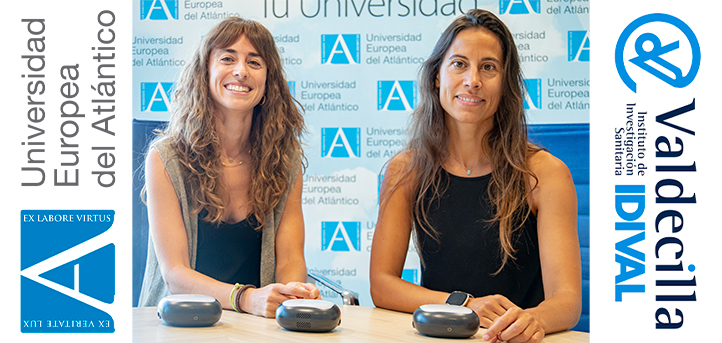Dr. Andrea Corrales and Dr. Mireia Peláez, professors at the Universidad Europea del Atlántico (European University of the Atlantic) (UNEATLANTICO), are collaborating as principal researchers in a feasibility study with Eloy Manuel Rodríguez, clinical neurologist and doctor at the Marqués de Valdecilla University Hospital (HUMV).
The study seeks to determine the viability of a multicomponent physical exercise program. It involves 20 patients from the Santander hospital diagnosed with mild neurodegenerative cognitive impairment, meaning they are highly likely to progress to dementia.
The research will utilize devices that produce light, sound, and vibration, supplied by the company A-Champs. As Mireia Peláez explains, these devices will provide sensory stimulation to address both physical and cognitive aspects concurrently.
There’s a precedent for using these pulsators in a study at the Universidad Rey Juan Carlos de Madrid (Rey Juan Carlos University of Madrid). The study observed an enhancement in cognitive and motor performance related to everyday activities for the experimental group.
The current research aims to strengthen the physical exercise regimen and compare the findings with the prior study to gauge if there’s a heightened cognitive and functional response in patients.
Additionally, the twenty participating patients will receive the mentioned devices to use at home. Their families, who often double as caregivers, will assist them. Dr. Peláez notes an innovation here, “While the benefits of this therapy are recognized, patients often face barriers accessing such programs. The limitations could be due to mobility issues arising from their illness, or dependency on others for transportation to a hospital”. “We think that a system based on telerehabilitation is going to achieve similar effects but in a much simpler and more accessible way,” Mireia adds.
The teacher further emphasizes: Involving family in the process promotes quality interaction between the patient and their relatives. Many families express uncertainty about interacting with their ailing loved ones. Madrid-based families appreciated this inclusive approach as it bolstered the patient’s social health.
About the program’s mechanics:
Participants will undergo evaluations assessing their physical, cognitive, and quality of life metrics before and after the program. The regimen spans 12 weeks with training 3 times a week. Telerehabilitation will use an application to log exercises and maintain a daily record of the patient’s progress.
Moreover, a designated coach will liaise with each family weekly. This is to oversee progress and address any challenges arising during the study’s duration.
A-Champs pulsators
Originating from elite sports training, these devices, named “Rox”, employ sensory stimuli to enhance faculties like reaction speed, memory, or stimulus discrimination.
Recently, they’ve transitioned to the health care sector. They assist the elderly, facilitate post-injury rehabilitation, and support individuals with ailments like Parkinson’s disease or brain injuries.
A-Champs pulsator, called “Rox”, illuminates, produces sounds, or vibrates. The user, whether an athlete or patient, must perceive this stimulus, process it, and then provide a swift and apt response.


